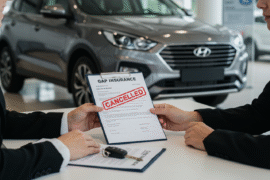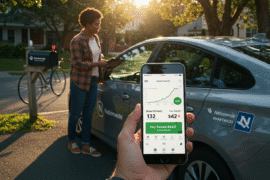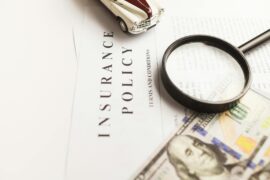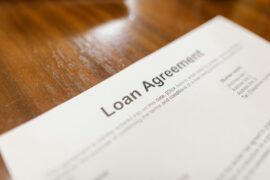This article may contain references to products or services from one or more of our advertisers or partners. We may receive compensation when you click on links to those products or services. Nonetheless, our opinions are our own.

Updated by Albert Fang
You may have your eyes set on the new hybrid SUV, but do you really want to break your savings to buy a depreciating asset? Thankfully buying a car is not the only option available to consumers. Leasing a car is also an option that is catching up and gaining popularity. Both have their own pros and cons, and there is no cookie-cutter choice; it depends on your circumstances.
According to the US Bureau of Transportation Statistics, of the estimated 128 million registered passenger vehicles in the USA, approximately 85.9 % were owned, while 14.1% were leased.
Owning a car offers you greater freedom and flexibility while leasing a car costs less upfront and has lower monthly payments too. We have compiled a few factors that need to be taken into consideration before making this decision
Car Ownership
Purchasing a car from a dealership or with the help of a car loan gives you full ownership. This means you can do whatever you want with the vehicle, which includes modifying and selling it without any terms and conditions. Also, the car will belong to you at the end of the loan term.
Owning a brand new car comes with a hefty price tag. According to figures from Kelley Blue Book, the average cost of purchasing a new vehicle in June 2022 was over $48,000. Although there are different options to finance the purchase, it is still expensive. You can avail of auto loans from banks, credit unions, or well-known lenders. Do your research to learn more about car loans and other finance options if you buy a car. There are other more affordable car options, like buying pre-owned vehicles.
Among other benefits, buying allows you to build equity in an asset.
- There are no limits on mileage – If you purchase a car, one advantage is that you won’t have to watch your mileage, like you do for a leased car.
- There are no charges for wear-and-tear – Usually, there are extra fees and charges levied for any damages that occurred under wear and tear. You won’t have to worry about this if you own the vehicle.
- There are no restrictions on selling the car – Since you purchased the car and it belongs to you, it is up to you what you want to do with it after the car loan is paid off.
However, owning a car also includes additional maintenance costs, regular servicing, and insurance. Over time, cars depreciate in value, so you may lose money if you sell or trade it in.
Car Leasing
Leasing a car typically involves you paying a monthly fee or rent to use the vehicle for a set period, usually 2 to 3 years, in the case of private cars. Leasing a vehicle is an affordable option for anyone who likes to drive a new car without paying the full price. It is also popular because car leases usually have lower out-of-pocket costs at signing, such as lower monthly payments.
Although it looks like a great option, leasing has some drawbacks. The most common one is the leasing companies put a mileage limit and issue penalties for excessive wear and tear on the vehicle.
Winding Up
Whether you want to buy or lease your car will depend on your financial situation, average daily driving, and long-term car plans. Calculate and see how much you can afford to pay upfront every month, and also consider how many miles you spend on the road to figure out the most cost-effective way to go ahead.
Also, you can get car loans to buy new cars but not to lease them. The tips mentioned in this post should help you make an informed decision on whether to buy or lease a car.

Reviewed and edited by Albert Fang.
See a typo or want to suggest an edit/revision to the content? Use the contact us form to provide feedback.
At FangWallet, we value editorial integrity and open collaboration in curating quality content for readers to enjoy. Much appreciated for the assist.
Did you like our article and find it insightful? We encourage sharing the article link with family and friends to benefit as well - better yet, sharing on social media. Thank you for the support! 🍉
Article Title: Car Ownership or Leasing? Top Tips to Know Which is Right For You
https://fangwallet.com/2023/02/10/car-ownership-or-leasing-top-tips-to-know-which-is-right-for-you/The FangWallet Promise
FangWallet is an editorially independent resource - founded on breaking down challenging financial concepts for anyone to understand since 2014. While we adhere to editorial integrity, note that this post may contain references to products from our partners.
The FangWallet promise is always to have your best interest in mind and be transparent and honest about the financial picture.
Become an Insider

Subscribe to get a free daily budget planner printable to help get your money on track!
Make passive money the right way. No spam.
Editorial Disclaimer: The editorial content on this page is not provided by any of the companies mentioned. The opinions expressed here are the author's alone.
The content of this website is for informational purposes only and does not represent investment advice, or an offer or solicitation to buy or sell any security, investment, or product. Investors are encouraged to do their own due diligence, and, if necessary, consult professional advising before making any investment decisions. Investing involves a high degree of risk, and financial losses may occur including the potential loss of principal.
Source Citation References:
+ Inspo












































